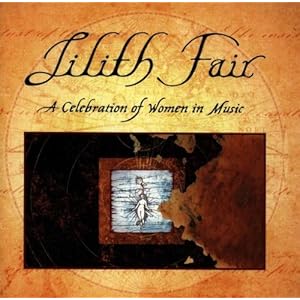According to McLachlan, the 2010 Lilith revival was poorly conceived. "Bringing the same thing back last year really didn’t make any sense, in retrospect, without due diligence being done on how women have changed," she said. "In 12 years, women have changed a lot. Their expectations have changed, the way they view the world has changed, and that was not taken into consideration, which I blame myself for.” (Rolling Stone)I understand the need for Lilith Fair, and for a few years in the late-90s, it accomplished its goals of bringing female singer-songwriters, and female-fronted bands to the forefront, but it wasn't without its problems either. Most notably, it did a poor job representing all women or all women artists. In her book about 90s girl culture, Girl Power, author Marisa Meltzer says of Lilith Fair:
Lilith was too broad and too homogenous for women who considered themselves serious music fans, but the target audience was more mainstream that that, anyway. The real problem was that, rather than coming out of third wave feminist ideas, Lilith was a direct descendent of women's music, a genre that included singers like Holly Near or Cris Williamson, known for being earnest and folksy, and was more closely aligned to the ethos of second wave feminism more than current feminist ideas or musical stylings.I agree with a lot of this, though I don't the emphasis on folk -- particularly mainstream singer-songwriters who already had a fair share of radio play -- nor the earnest, hippy ethos was the problem as much as it was symptomatic of the problem that Lilith fell back on some old stereotypes of "women-only" spaces. It was "feminism-lite" -- cleaned, prepped and accessible to the mainstream public.
Though it deny that it broke any ground would be dishonest. At the time, music festivals were the domain of teenage boys into punk rock or metal, two genres that has a history of being inhospitable to women. For that, rest in peace, Lilith.


No comments:
Post a Comment